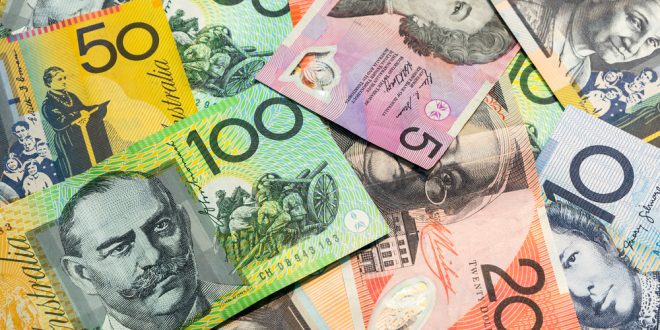The AUD/USD cratered into the low-0.6900s on Monday, down over 1.5% on the day and over 4.0% lower in four days. The pair is being battered by risk-off flows as markets price a more hawkish Fed and potential recession.
China lockdown fears are also hurting the pair, with bears eyeing a near-term test of support in the low-0.6800s. AUD/USD cratered on Monday in tandem with a collapse in US and global stock market sentiment as investors upped their bets on both Fed tightening (in wake of last Friday’s US inflation data) and a US recession (in wake of last Friday’s US Consumer Sentiment figures).
The pair was last trading to the south of the 0.6950 level, having shed over 1.5% on Monday, taking its string of losses in the last four sessions to over 4.0%.
The risk-sensitive Aussie is also feeling the pain of renewed fears about lockdowns in China as Beijing and Shanghai both reinstate restrictions to contain new Covid-19 outbreaks. China is Australia’s largest trade partner and is the main export destination for many of the country’s industrial/energy coming.
Anyone who bet on near-term Aussie upside in wake of last week’s larger-than-expected RBA rate hike has likely already been stopped out. That should deter traders from betting on a substantial rebound in the pair should this Thursday’s Australia labour market report come in better than expected. Indeed, the Aussie is this week set to continue to trade as a function of broader risk appetite and USD flows.
As risk appetite craters on central bank tightening and recession fears and the US dollar benefits from the hawkish Fed and its status as a safe-haven currency (it is the world’s reserve currency, after all), AUD/USD next stop is likely the May lows in the mid-0.6800s.
If it can break below 0.6800, there isn’t much to stop a run all the way lower to around the 2019 lows in the upper-0.6600s. The main macro events of the week will be Tuesday’s US Retail Sales report for May and Wednesday’s Fed meeting, where some are calling the bank to invoke a Volcker moment and surprise with a larger 75 or 100 bps rate hike.

 Noor Trends News, Technical Analysis, Educational Tools and Recommendations
Noor Trends News, Technical Analysis, Educational Tools and Recommendations




